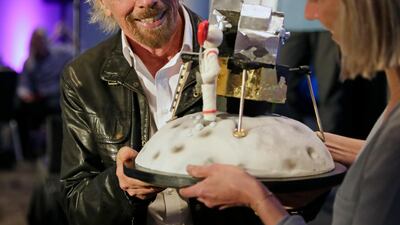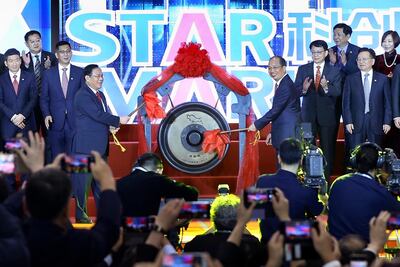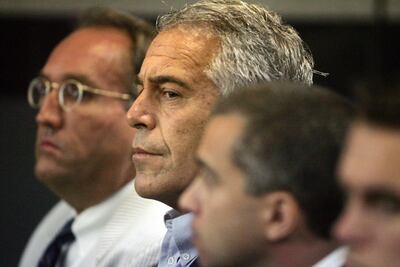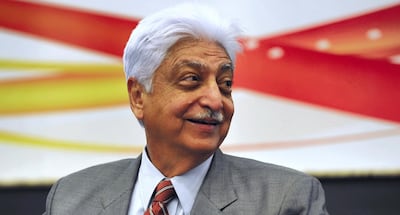Richard Branson
Inspired by Apollo, Virgin Galactic’s Richard Branson said his spaceship has just a few more test flights before he jumps on board for the first tourist trip.
The British billionaire celebrated his 69th birthday at NASA's Kennedy Space Center during 50th anniversary festivities for humanity's first moon landing. His guests were 100 other aspiring astronauts who have put down deposits to launch into space with Virgin Galactic. Like Mr Branson, many in the crowd were inspired to fly into space by Apollo 11, which he called "the most audacious journey of all time."
Mr Branson said three or four test flights will be conducted from New Mexico, beginning this autumn, before engineers allow him to fly. The two suborbital test flights to date — conducted in December and February over California's Mohave Desert — provided several minutes of weightlessness.
Mr Branson declined to say when his flight might happen.
"My track record for giving dates has been so abysmal that I'm not giving dates anymore. But I think months, not years," he told The Associated Press.
The company is in the process of moving from Southern California to Spaceport America in the New Mexico desert, which has set everything back four months, according to Mr Branson. The test pilots need to practice landing there, he said, before passengers tag along.
"I certainly won't go into space before brave test pilots feel 100 per cent comfortable that we've checked every box," Mr Branson said.
In 2014, the company's experimental space plane broke apart during a California test flight, killing the co-pilot.
Mr Branson said Neil Armstrong and Buzz Aldrin's moon landing was forever etched in his memory. Watching those first lunar footsteps on a little black and white TV, with his sisters and parents in the English countryside, was a turning point for him. He said it's why Virgin Galactic exists today.
Michael Deng, Wenyuan Chen and Ji Cao
Shares on China's new tech-focused stock board, STAR Market, hit fever pitch on their first day of trading last week, with 25 companies soaring an average 140 per cent. The success has propelled at least three people straight into the billionaire's club, Fortune magazine reported.
Michael Deng, chief executive of ArcSoft, now has roughly a $1.1 billion (Dh4.04bn) stake in the Northern California-based software maker after shares jumped 127 per cent in its first day of trading for a valuation of roughly $3.9bn, according to filings with the Shanghai Stock Exchange.
Suzhou HYC Technology registered gains of 129 per cent, giving shares owned by chairman Wenyuan Chen and his wife Zhang Qian, a value of about $2.7bn. The company, which builds smart displays and organic light-emitting diode testing equipment, is valued at around $3.2bn.
The third billionaire founded Zhejiang HangKe Technology, a producer of lithium ion batteries. Chairman Ji Cao owns a $2.3bn stake in that company now worth roughly $3.2bn.
The new billionaires, however, will have to hold on tight. It seems executives and major shareholders of these companies have a lock-in period ranging between 12 to 36 months.
Jeffrey Epstein
Deutsche Bank is scrutinising transactions that accused child sex trafficker Jeffrey Epstein conducted through the firm as prosecutors try to piece together his finances.
“Deutsche Bank is closely examining any business relationship with Jeffrey Epstein, and we are absolutely committed to co-operating with all relevant authorities,” Troy Gravitt, a spokesman for the bank in New York, said in a statement last week.
The German bank, itself a subject of unrelated government investigations, closed Mr Epstein’s accounts over several months earlier this year, Bloomberg reported this month. Mr Epstein was arrested on July 6 and charged with sex trafficking and conspiracy by federal prosecutors in New York.
The New York Times reported that the bank filed suspicious activity reports related to transactions in which Mr Epstein moved money out of the US.
Mr Epstein, 66, is fighting accusations that he sexually assaulted teenage girls from 2002 to 2005. He has pleaded not guilty to charges of sex trafficking in minors and conspiracy and says he has fully complied with the law for the past 14 years.
Meanwhile, there are doubts about the extent of Mr Epstein's wealth and his status as a billionaire. According to an article in The New York Times, his "fortune may be more illusion than fact". A July 16 Forbes article titled "Court documents confirm Jeffrey Epstein is nowhere near a billionaire" stated that Mr Epstein has over $550 million in assets, according to a financial disclosure form filed by his legal team. The values of his properties, including a Manhattan mansion and two islands in the Virgin Islands, were confirmed by Mr Epstein's team for the first time at around $180m.
Azim Premji
Azim Premji, who turned 74 last week, will step down as chairman of Indian conglomerate Wipro on July 30. Mr Premji will hand the reins over to his son Rishad, who is currently vice chairman and chief strategy officer, but will retain a board seat and hold the title of founder chairman.
In a company statement, Mr Premji said he plans to “devote more time to focus on our philanthropic activities”.
Mr Premji was the first Indian to sign up for The Giving Pledge, a campaign led by Warren Buffett and Bill Gates. In March, he announced that he was donating the majority of his Wipro shares and other assets — worth $21bn — to his education-focused charitable foundation. As a result, his fortune, which had made him India’s second richest man, dropped to $5.2bn.
The tech magnate has led Wipro, India’s third-largest outsourcer, since 1966, when his father died and he gave up his engineering studies at Stanford University to take over the family’s cooking oil business. He diversified the company, called Western Indian Vegetable Products at the time, and in the 1980s entered the technology sector by manufacturing minicomputers and developing software.




